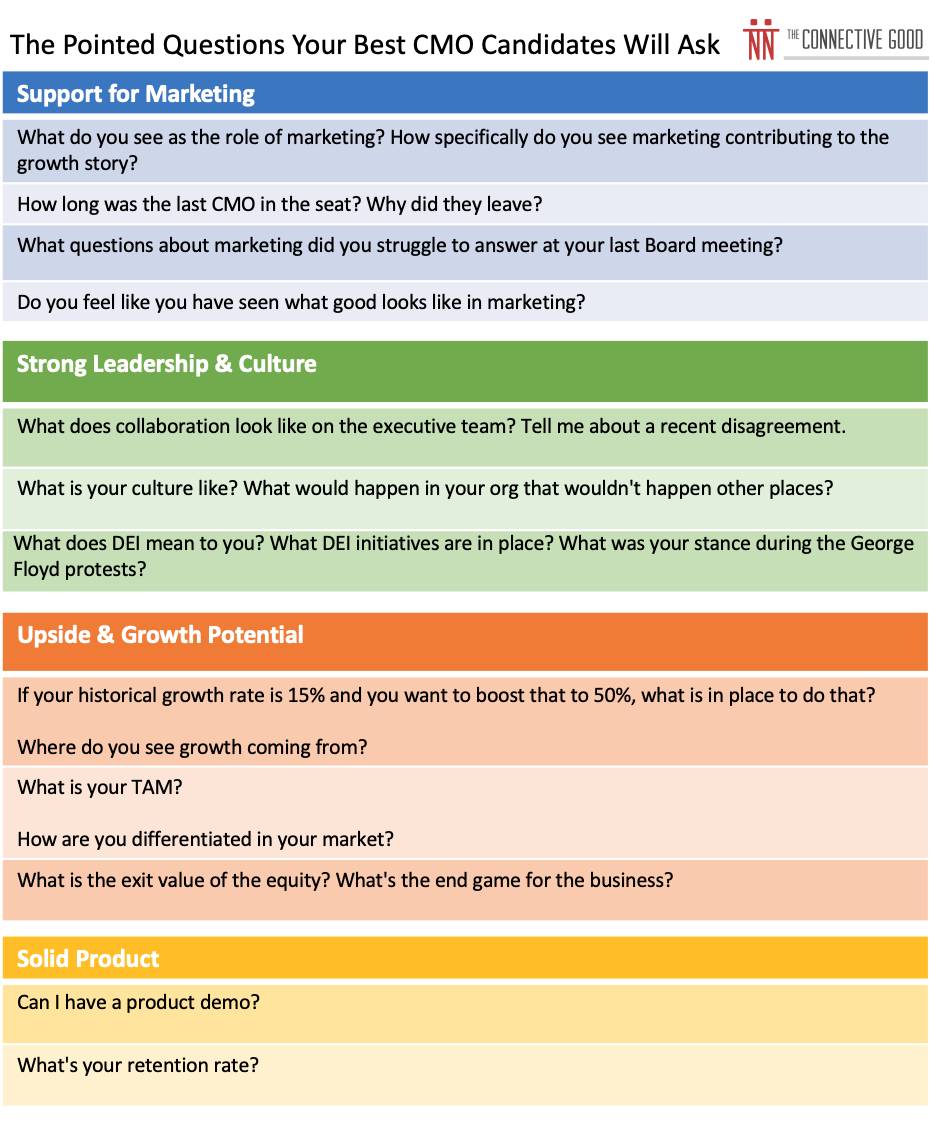When I was looking for someone to marry, I wrote up a scorecard to vet potential partners. I called it my LIFE scorecard.
I was looking for someone who was a good Listener, had some International experience or interest, was socially Flexible (able to interact with lots of different people), and was supportive of Erica.
Yes, I am that much of a dork. And yes, my friends did a lot of cackling as I returned from dates and reported back on how I would score such and such an Eligible Bachelor.
But the funny thing was – it ultimately worked.
Recruiting is a lot like dating, as you know. Both sides should be clear on their criteria in order to make a good match.
So there’s a question I ask CMOs and VPs of Marketing when I approach them for a search: What are your top 3 criteria for your next role?
And they are picky. Why?
- They can afford to be: Many tell me they have been fielding upwards of 5-10 recruiter calls per week. (While this is bound to eventually change with the economic headwinds, the market is still quite frothy.)
- The best CMOs have followings – people who follow them from one company to the next. These CMOs are not just looking for a great home for themselves, but for their protégés too.
- Work has changed: People used to expect to fit their life into their work. Now, they are looking for their work to fit into their life.
- Many are taking time off in between roles. After all, the stigma to being in between jobs has virtually disappeared. So they can dedicate themselves to a proper search, lots of research, and robust interview processes to find the best match.
Net: their vetting can be just as strenuous as yours.
What criteria are important to CMO candidates today? What tough questions might they ask?
Here’s a peek at some key criteria your CMO candidates are likely to have, based on conversations I’ve had with hundreds of marketing leadership candidates over the last few months. Being prepared for conversations like this can help you attract the best fits for your CMO roles.

Some observations:
- CMOs want to find a CEO and team that will support marketing, not starve it or smear it. The best CMOs are very good at sussing that out.
- It’s OK if a CEO doesn’t understand marketing fully. But CMOs will look at the CEO’s openness to learning. And at how much the CEO will trust them to run the marketing ship.
- While CMO candidates are looking for a CEO and executive team to support marketing, those CMOs are also looking for a mission, product, market, and growth story that they can get behind.
- Candidates are paying more and more attention to culture. But interestingly, my observation is that very few are able to talk about it too constructively beyond saying they want a team that is transparent, direct, and collaborative. Candidates and companies have an opportunity to deepen the dialogue here.
To attract the most discerning CMOs, consider these actions:
- Evaluate yourself on your responses to the pointed questions CMO candidates may ask. Where are you strong? Where could you improve? Where can you clarify your position to candidates?
- Include a product demo in the candidate experience.
- Show the culture honestly, discuss it, and encourage dialogue about it. Consider inviting top candidates to a gathering of the team so they can see the leadership team dynamic. Re-craft job specs to demonstrate the culture ‘early and often.’
- Consider including customers in the process, since so much of marketing is about customer connection. I have yet to do a search where a customer reaches out to a candidate – it would be a differentiator.
- Have the conversation on compensation and equity early on, and bring to life the exit value they can expect.
- Engage an investor to not just grill candidates but to share the investment rationale and investors’ excitement about where the business is going.
- Be up-front about your WFH/hybrid/remote approach. Know that tech companies that are mandating the majority of time in the office are finding it slow to hire and risk being seen as outdated.